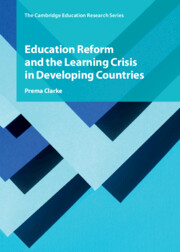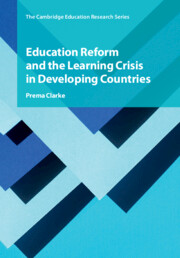Governing Universities in Post-Soviet Countries
University governance is an essential but complex phenomenon, even in countries where institutional-level governance has a long and strong tradition. After the dissolution of the USSR, each of the 15 former Soviet countries developed their own university governance system and this groundbreaking book explores how these countries evolved from the 'common start' of a unified and tightly controlled higher education system, to shaping their own paths in higher education. Each chapter explores a different country, allowing university governance models to be compared and contrasted. The countries provide examples of a variety of different governance models – state-extended, academic focused, internal/external and civic – and the book highlights the advantages and disadvantages of each relative to their context. It also presents innovative frameworks to understand governance effectiveness in terms of autonomy, competition, and capacity. It is essential reading for researchers, students, and policy makers. This title is also available as open access on Cambridge Core.
- Calls attention to governance reform outside the traditionally studied high-income countries and captures a diversity of governance approaches
- Advances two novel frameworks to contextualize effective governance that build on and add to the groundbreaking EUA Autonomy Scorecard
- Highlights innovative efforts in higher education in developing and transitioning educational, policy and economic contexts
- This book is also available as open access
Product details
October 2023Hardback
9781009098731
280 pages
250 × 175 × 22 mm
0.69kg
Available
Table of Contents
- Introduction
- Part I. Framing the Context:
- 1. Governing universities in post-Soviet States Peter D. Eckel
- 2. Understanding ground zero: the Soviet context and legacy as the starting point for reform Zumrad Kataeva
- Part II. Country University Governance Profiles:
- 3. Armenia Peter D. Eckel
- 4. Azerbaijan Merey Mussabayeva and Serik Ivatov
- 5. Belarus Peter D. Eckel
- 6. Estonia Rita Kaša
- 7. Georgia Leah Shapiro
- 8. Kazakhstan Peter D. Eckel and Darkhan Bilyalov
- 9. Kyrgyzstan Zumrad Kataeva and Ali Ait Si Mhamed
- 10. Latvia Rita Kaša
- 11. Lithuania Rita Kaša and Ali Ait Si Mhamed
- 12. Moldova Peter D. Eckel
- 13. Russia Zumrad Kataeva
- 14. Tajikistan Zumrad Kataeva
- 15. Turkmenistan Serik Ivatov and Darkhan Bilyalov
- 16. Ukraine Ali Ait Si Mhamed and Serik Ivatov
- 17. Uzbekistan Ali Ait Si Mhamed and Serik Ivatov
- Part III. Comparisons and Analyses:
- 18. Variety and variation among post-Soviet university governing structures: toward four models Peter D. Eckel and Darkhan Bilyalov
- 19. Governing appropriately: autonomy and bureaucratic capacity Peter D. Eckel
- 20. Governing in the context of competition and autonomy Peter D. Eckel and Ali Ait Si Mhamed
- Conclusion
- 21. Addressing the dilemmas of governance in the post-Soviet context Peter D. Eckel
- References
- Index.






